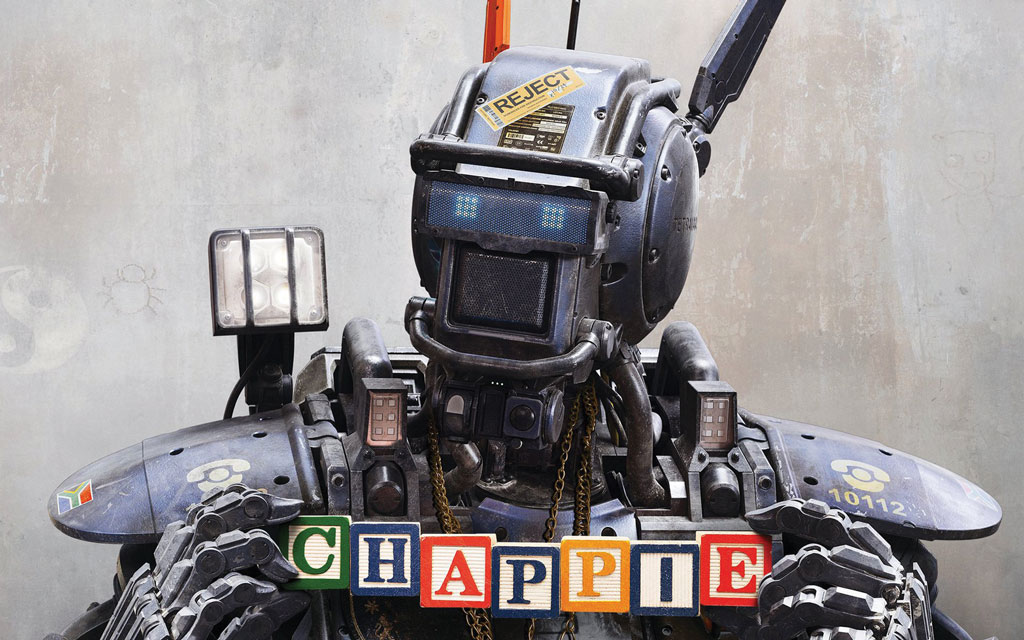By Mitch Huttema (The Cascade) – Email
Print Edition: March 18, 2015

Chappie is a raw and rough — but also delicate and emotional — film about too many things in general.
Set in the near future, the film follows the story of the creation and life of an artificially intelligent robot in Johannesburg, South Africa, where the police employ an unstoppable robot force to fight and control crime. Deon (Dev Patel, Slumdog Millionaire, creator of the programmable robot police, achieves his goal of creating artifical intelligence early in the film, and then proceeds to make Chappie (Sharlto Copley). His counterpart Vincent Moore (Hugh Jackman), the villain of the film, is in the process of creating the “Moose,” a human-controlled heavy-duty robot warrior. Deon’s success leads to funding cuts for Moore’s research, which prompts him to seek revenge on Deon.
Chappie is the third feature film directed by Vancouver Film School alumnus Neill Blomkamp (Elysium, District 9), and boasts South African zef rave punk duo Die Antwoord as main cast members.
Unlike previous films from Blomkamp that had very specific agendas, Chappie dabbles in spirituality, moral repercussions of technological advancement, lifestyle choices, and the importance of being a unique member of society. But this divided intent makes the film ineffective at saying anything potent, and turns into a lot of weak stock characters partaking in a cobbled-together plot.
At one point, Ninja of Die Antwoord has a conversation with Chappie about the intentions of his maker when Chappie was created, which becomes very spiritual in nature. However, rather than opening any doors to conversation about religion, it falls flat because Deon’s intentions in creating Chappie were restricted and forced by situation, unlike in any religion.
Sigourney Weaver starts out as a badass stubborn icon, like every film she’s in — but in a crucial moment, she caves in with no resistance to Moore and okays his self-serving and oddly convenient solution to a huge crisis. It’s at this moment that the plot of the film goes to die. From this point on, nearly every twist and turn leads to spectacle and hard-to-believe turns of events.
Hugh Jackman cannot play a villain; after Chappie, that’s a fact. It doesn’t help that his character in Chappie is equivalent to a revenge-seeking child in a sandbox. And Jackman can hardly be hated with a dorky mullet and his twinkling, smiley eyes perched atop a halfhearted scowl.
Most disappointing was the plot. The story has so much potential, but key plot elements are used frivolously to escape tough situations, and the standards of believability the film had set up are sacrificed later on at the altar of plot resolution.
Chappie sets itself up to be super enjoyable and loveable, but ends up disappointing the critical viewer with weak plot resolution and characters that lack depth and relatability. The film departs from Blomkamp’s highly politicized District 9 and moves closer to a Michael Bay-style frivolous action film. Though Blomkamp maintains an aspect of philosophical concern in Chappie, he doesn’t make it easy for the viewer to access it.


